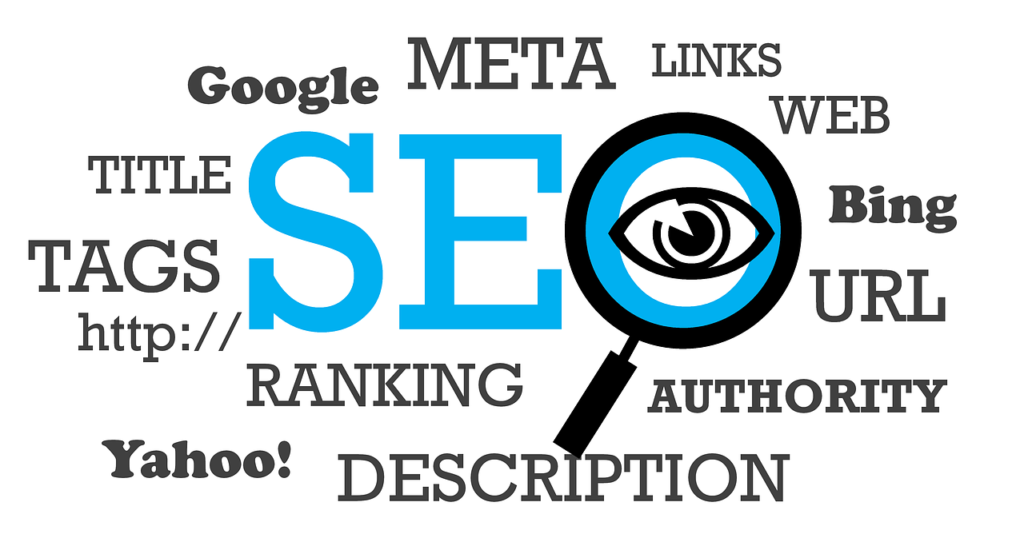
1. Advertising
2. SEO
3. Web Design
What will our advertisement look like?
In the bustling landscape of modern commerce, where brands vie for attention in an increasingly saturated market, the role of an advertisement company has become more crucial than ever. These entities are not merely purveyors of promotional materials; they are strategic partners, creative architects, and technological innovators, all working in concert to elevate brands and drive business growth.

The core function of an advertisement company revolves around crafting and executing effective advertising campaigns. This process, however, is far from simple. It begins with a deep dive into the client’s brand, understanding its values, target audience, and market positioning. This foundational research is essential for developing a campaign that resonates with the intended consumers.
Once the brand’s essence is grasped, the creative team at the advertisement company takes center stage. They brainstorm ideas, develop concepts, and translate them into compelling narratives. This stage involves a blend of artistic vision and strategic thinking. The aim is to create advertisements that are not only visually appealing but also strategically aligned with the client’s marketing objectives.
In today’s digital age, the scope of an advertisement company extends far beyond traditional media. While print, radio, and television advertising remain relevant, the digital realm has become the primary battleground for consumer attention. Digital advertising encompasses a wide range of channels, including social media, search engine marketing, email marketing, and online video platforms.
Social media marketing, in particular, has become a cornerstone of modern advertising. Platforms like Facebook, Instagram, Twitter, and TikTok offer unparalleled opportunities for brands to engage with their target audience. An effective advertisement company understands how to leverage these platforms to create targeted campaigns that drive engagement and conversions. They are adept at crafting content that resonates with specific demographics and utilizing data analytics to optimize campaign performance.
Search engine marketing (SEM) is another critical aspect of digital advertising. By optimizing websites and creating targeted ad campaigns, an advertisement company can help businesses improve their visibility in search engine results. This ensures that potential customers can easily find the brand when they are actively searching for related products or services.
The data-driven approach is a hallmark of a modern advertisement company. They utilize sophisticated analytics tools to track campaign performance, measure ROI, and identify areas for improvement. This allows them to make informed decisions and optimize campaigns for maximum effectiveness. This analytical rigor separates a professional advertisement company from a simple creative shop.
Furthermore, a successful advertisement company is not just about creating ads; it’s about building brand experiences. This involves creating a consistent brand message across all channels and touchpoints. They focus on creating a cohesive brand story that resonates with the audience. This includes everything from the visual identity to the tone of voice used in marketing materials.
The relationship between an advertisement company and its clients is built on trust and collaboration. Effective communication is essential for ensuring that the client’s needs are met and that the campaign aligns with their overall business goals. A good advertisement agency will prioritize transparency, providing regular updates and reports on campaign performance.
In addition to creativity and strategic thinking, a leading advertisement company must also be adaptable and innovative. The advertising landscape is constantly evolving, with new technologies and platforms emerging regularly. They must stay ahead of the curve, embracing new trends and adapting their strategies accordingly.
The rise of influencer marketing is a prime example of this evolution. Influencers have become powerful advocates for brands, and an effective advertisement company knows how to identify and partner with influencers who align with the client’s target audience.
Finally, a reputable advertisement company understands the importance of ethical advertising practices. They adhere to industry standards and regulations, ensuring that their campaigns are truthful, transparent, and respectful of consumer privacy.
In conclusion, an advertisement company is a multifaceted entity that plays a vital role in the success of modern businesses. They combine creativity, strategic thinking, and technological expertise to craft compelling campaigns that drive brand awareness, engagement, and sales. By understanding the nuances of the market and adapting to the ever-changing landscape, they empower brands to thrive in a competitive environment.
SEO
In the digital age, a strong online presence is paramount for any business. This is where SEO, or Search Engine Optimization, comes into play. Essentially, SEO is the process of optimizing your website to rank higher in search engine results pages (SERPs), driving organic traffic and increasing visibility.

Here’s a breakdown of key SEO concepts:
- Keyword Research:
- This is the foundation of any successful SEO strategy. It involves identifying the words and phrases that your target audience uses when searching for products or services like yours.
- Effective keyword research helps you understand search intent and tailor your content accordingly.
- On-Page SEO:
- This refers to optimizing the content and HTML source code of your web pages.
- Key elements include:
- Title tags and meta descriptions: These provide concise summaries of your page’s content.
- Header tags (H1, H2, etc.): These structure your content and improve readability.
- Content optimization: Creating high-quality, relevant, and engaging content that incorporates your target keywords naturally.
- Image optimization: Using descriptive alt text and compressing images to improve page load speed.
- Off-Page SEO:
- This involves building your website’s authority and reputation through external factors.
- A crucial aspect of this is link building, which entails acquiring high-quality backlinks from other reputable websites.
- Social media marketing and online reputation management also contribute to off-page SEO.
- Technical SEO:
- This focuses on optimizing the technical aspects of your website to ensure that search engines can crawl and index it effectively.
- This includes:
- Site speed optimization.
- Mobile-friendliness.
- XML sitemaps.
- SSL certificates.
SEO is an ongoing process that requires continuous monitoring and adaptation. Search engine algorithms are constantly evolving, so it’s essential to stay up-to-date with the latest best practices. By implementing a comprehensive SEO strategy, businesses can improve their online visibility, attract more qualified leads, and ultimately achieve their marketing goals.
WEB DESIGN
In today’s digital landscape, a compelling online presence is essential, and at the heart of that presence lies effective web design. More than just aesthetics, web design encompasses the creation of user-friendly, visually appealing, and functionally robust websites that drive engagement and achieve business objectives.

A well-executed web design process begins with understanding the client’s brand identity, target audience, and business goals. This foundational knowledge guides the design team in creating a website that resonates with the intended users and effectively communicates the brand’s message.
Web design involves several key elements:
- User Experience (UX) Design:
- This focuses on creating a seamless and intuitive experience for website visitors.
- It involves understanding user behavior, designing clear navigation, and ensuring that the website is easy to use across all devices.
- A positive UX is crucial for retaining visitors and encouraging conversions.
- Visual Design:
- This encompasses the aesthetic aspects of the website, including color palettes, typography, imagery, and layout.
- A visually appealing design enhances brand perception and creates a memorable impression.
- The design should be consistent with the brand’s overall visual identity.
- Responsive Design:
- With the proliferation of mobile devices, responsive design is no longer optional.
- It ensures that the website adapts seamlessly to different screen sizes and resolutions, providing an optimal viewing experience on desktops, tablets, and smartphones.
- Content Integration:
- Web design is not just about visuals; it’s also about content.
- The design should complement the website’s content, making it easy to read and understand.
- Clear and concise content, combined with effective visual hierarchy, enhances user engagement.
- SEO Considerations:
- Good web design takes into account SEO best practices.
- This includes optimizing website structure, ensuring fast loading speeds, and creating mobile friendly sites.
- These considerations help search engines crawl and index the website effectively, improving its visibility in search results.
A professional web design agency combines creative expertise with technical proficiency to deliver websites that are both visually stunning and functionally sound. They stay up-to-date with the latest design trends and technologies, ensuring that their clients’ websites remain competitive in the ever-evolving digital landscape. Ultimately, effective web design is a strategic investment that can significantly impact a business’s online success.

